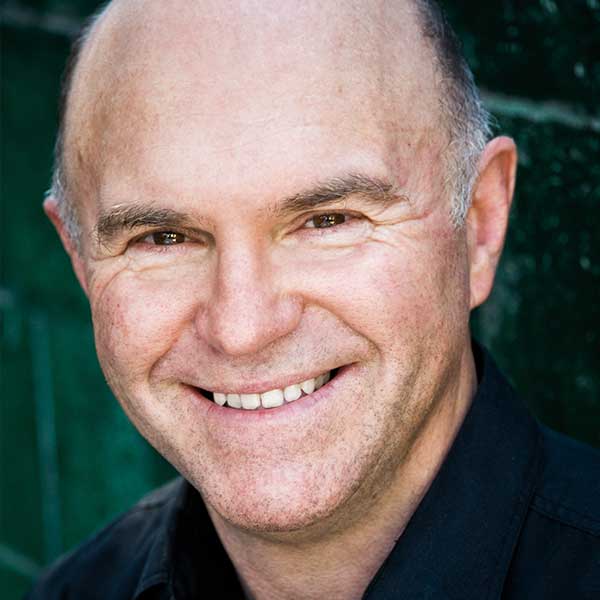Review: The American Recordings (Paderewski)
The most famous classical pianist of the early 20th century performs with expression and deep understanding in these restored recordings.


Phillip Scott is a long-time reviewer for Limelight and US music journal Fanfare. He has written four novels and the scores of several children’s shows for Monkey Baa Theatre Company. He is best known for his work as performer, writer and Musical Director for The Wharf Revue.
The most famous classical pianist of the early 20th century performs with expression and deep understanding in these restored recordings.
Individual, instrumental brilliance balanced by a group cohesiveness and single-mindedness.
This programme is built around around two substantial Fantasias for piano: the Mozart in C Minor K475, composed in 1785, and the early Fantasie in C by Schumann, written in 1836. Although only 50 years separate them, the two works fall distinctly into the Classical and Romantic periods of European music. They share a free form in common (in spite of the Schumann falling, sonata-like, into three movements), but their differences are fundamental. Mozart’s idea of the fantasy is to be free with keyboard decoration, and to roam through different keys and thematic ideas not dictated by a predetermined structure. Schumann’s idea of fantasy is an emotional one, ranging through those heightened states so beloved of the early Romantics, namely fiery passion and introspective melancholy. Mozart’s Piano Sonata No 14 is also in C Minor: a dark key for the composer (as for Beethoven), so there is an argument that a more Romantic approach is justified. In both works pianist Piotr Anderszewski gives us just that, to generally good effect. He is suitably stormy in the Sonata’s first movement, but I find the slow movement – for all his sensitivity – to be too introverted. He approaches it with eyes…
Robertson, Clerici and the SSO deliver a cleverly planned programme, played with panache.
Unlike the lifelong artistic journey of some other pianists, that of Maurizio Pollini has remained remarkably consistent. Winning the 1960 International Chopin Competition, the young virtuoso’s approach right from the start was one of clarity, served by a technique of formidable strength and accuracy. Pollini made two recordings of Chopin for EMI, then took an extended break. In 1971 he signed with DG where he has remained to this day. Every one of his early LPs was an event, due to his phenomenal concentration and technical assurance: His Prokofiev Seventh Sonata and Stravinsky’s Three Pieces from Petrouchka, and his Chopin Études, remain gramophone classics. From then until the ultimate release in this box from 2014, he has not so much mellowed as matured. He continues to seek out a work’s structure and clarify its textures; he is revelatory in Schoenberg. The more important the music, the better. Bach’s Well Tempered Clavier (Book 1), Beethoven’s and Schubert’s late Piano Sonatas all receive this treatment. The slow movement of Beethoven’s Third Piano Concerto (especially in the earlier performance under Karl Böhm) is neither personal introspection nor a lyrical serenade; it is a hymn. With Pollini you get none of the wry humour…
Music and pianos of historical interest in gutsy performances.
Sydney's Met musos indulge in a little musical vodka.
Philip Glass produces a great deal of music. His works unfold through the repetition of rhythmic figures, and by juxtaposing straightforward tonal chords (major and especially minor) that frequently have no traditional harmonic association with each other. It’s a recognisable sound, quite distinct from the music of his Minimalist colleagues Steve Reich and John Adams, particularly in their most recent works. Of the three, Glass has the broadest following because of the films he has scored, and operas like Akhnaten and Einstein on the Beach which helped define the zeitgeist of the 1980s. This new 2-disc set brings a selection of Glass’s music for solo piano. There have been previous such compilations and a pianist named Nicolas Horvath has been recording a complete series that reached its fifth volume last year. Levingston gives us the Etudes Nos 1, 2, 5, 6, 9, 10, 11, 12, 16 and 17; The Illusionist Suite (based on the music for a film); Dreaming Awake, described as “a deeply enigmatic, metaphysical study in sonority”; Metamorphosis No 2 (derived from Kafka’s story), and a piece inspired by an Allan Ginsburg poem, Wichita Vortex Sutra, during which the poem is recited by actor Ethan Hawke. I do…
Barenboim’s new piano is a concert grand made by the Belgian instrument maker Chris Maene to the pianist’s specifications. It differs from the usual Steinway D in several crucial respects, one being the use of parallel rather than crossover strings. So far this Maene piano is the only one of its kind, and Barenboim has “fallen in love with it”. I hear less tonal homogeneity across the registers, less “blend” as the pianist puts it. The bass produces great warmth, shown off in Liszt’s arrangement of the March from Wagner’s Parsifal. The tone of the upper registers resembles a Classical period fortepiano (“hollow” is too strong a word), which makes it eminently suitable for Scarlatti. I’ve not heard Barenboim in Scarlatti before; he approaches these three sonatas in an unruffled but characterful way. Like the Fazioli piano, which it also resembles in the treble, the Maene seems incapable of producing a smooth, singing legato – rather a drawback in Chopin’s Ballade No 1 and Liszt’s Funérailles – and we are used to more upper-level brightness in Beethoven’s 32 Variations and Liszt’s Mephisto Waltz. The latter is neither diabolic nor exciting, although the tone colours are attractive. Big fortes can be…
An exhilarating concert, led by a vigorous violinist.
English masterpieces by Elgar and Vaughan Williams in superbly played programme.
Three's a charm for Gidon: DG fields a dream team to bring this elegiac music to life.
Made famous by The Sting, the master of ragtime and the syncopated sound died 100 years ago today.